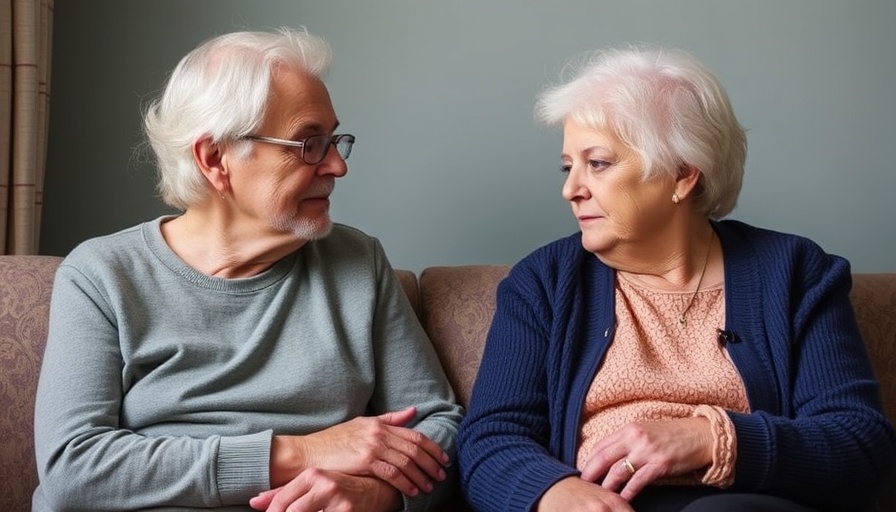
The Challenges of Caring for Aging Parents
Caring for aging parents can evoke a whirlwind of emotions, especially when siblings have different ideas about the best approach to care. This dynamic often leads to feelings of resentment, frustration, and conflict. In Australia, a recent study highlights the deep anxieties families face, particularly when love is overshadowed by poor planning regarding end-of-life care.
Real Stories of Sibling Conflict
Taking care of aging parents is a labor of love, but it can also become a source of discord among siblings. For instance, when Anna's parents visited her in Queensland, she noticed serious changes in their health that they had tried to conceal. Following her father's hospitalization due to a fall, and her mother's increasingly confused state, Anna faced the difficult decision to move them into aged care. The stress of navigating these issues, compounded with deep-seated sibling rivalry, led to a breakdown in communications. This story is not just Anna's - it highlights a common phenomenon among many families struggling with similar issues.
The Toll of Emotional Burden
Emotions often run high during this stage of life. Anna's experience reflects the findings of Violet's research: more than three-quarters of Australians worry that caregiving responsibilities will hurt their family relationships. Additionally, 70% expressed concern about their ability to manage these burdens effectively. These revelations underscore the need for clear communication and support systems when navigating end-of-life care decisions.
Strategies for Effective Care Coordination
One of the crucial steps to ease familial tensions is to create a clear plan together. Engaging in open and honest discussions about hopes, fears, and financial situations surrounding care can foster understanding among family members. Seeking mediation services or guidance from healthcare professionals can also alleviate the stress of decision-making.
The Importance of Planning Ahead
A proactive approach can pave the way for healthier family dynamics. Families should consider scheduling regular family meetings well before a crisis arises, discussing options for aged care, financial matters, and legal documentation. This kind of preparation not only mitigates last-minute pressures but can also strengthen familial bonds.
Emotional and Practical Support Systems
Support systems play a pivotal role in helping families cope with caregiving challenges. Encouraging siblings to establish their limits and to seek professional help when needed is essential. Whether it involves counseling, support groups, or seeking advice from healthcare providers, these resources can provide both practical insights and emotional relief.
Ending the Cycle of Resentment
By addressing the prevention of conflicts and improving communication within families, dynamics during caregiving can shift from being adversarial to supportive. This develops a healthier environment not only for the caregivers but also for the aging loved ones who depend on them. A shift towards understanding and compassion can help end the cycle of resentment often found in such situations.
Call to Action: Embrace Planning Today
The journey through caregiving does not have to be traveled alone. Begin discussing your family's health needs and care options today. By navigating these challenges together, you can turn potential conflicts into opportunities for connection. Take proactive steps towards a nurturing and supportive environment for your loved ones. Reflection and planning can make a significant difference in both your life and theirs.
 Add Element
Add Element  Add Row
Add Row 



Write A Comment